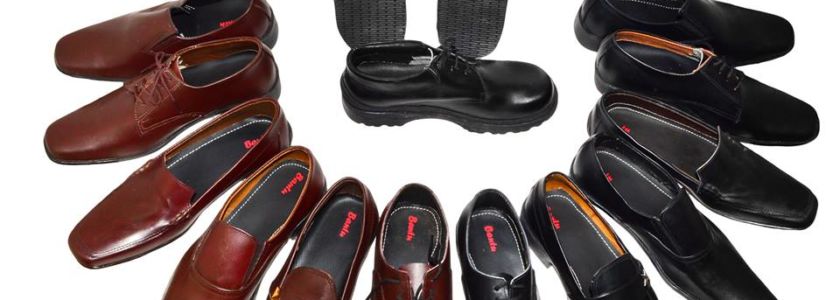Shoes business in Ngara: 28-year-old Jannes Otieno Ochieng’ entrepreneurial journey started way back when he was a second year university student at Kenya College of Accountancy in 2008, now KCA University – where he started an online market for electronics.

Mr. Jannes Otieno Ochieng.
“I failed to pay the maintenance fee for the website and I had to close it down in 2011,” said Ochieng, the father of one boy aged four years. He then secured an accounting, auditing and business advisory job at Kioko and Associates, the job that he did well, thanks to his experience in online marketing. In 2014 while still doing advisory job, he ventured into shoe making business after he realised that 80 per cent of shoes worn in Kenya are imported yet the materials used to make them are locally available.
“I also realised that there is a market for shoes in Kenya whereby according to Kenya Bureau of Standards, annual demand stands at 24 to 32 million pairs, surpassing the current production capacity of four million pairs. The deficit is being filled by imports from countries such as China and Ethiopia,” Ochieng says.
Since his father used to make suits in Kapsabet, in Nandi County, he also saw it good to complement his father’s business by making shoes so that they can wholly dress up customers.
He met and befriended one David Odhiambo in Korogocho slums, who had worked in a local shoe manufacturing company for years as a designer. “I told him I want to start shoe making business and needed a designer, as I look for market,” said Ochieng, a last born in a family of six, born in Kapsabet but raised in Nyakach, Kisumu County.
Armed with only Sh. 40,000 as seed capital from his savings, he bought his initial sewing machine and materials and used the rest to pay rent expenses in a single room in Githurai 45. They moved to Ngara in a 10 by 18 feet size room in March this year. The company started producing 40 pairs per month but now it does 180.
The company deals in 14 models of shoes of various colours. They include formal school shoes with silica leather, loafers with premium refined leather, moccasins, sandals and half boots. The prices range between Sh. 1,600 and Sh. 3,000. He sells about 100 pairs each month and on a good month, he can sell up to 350. The pairs come with a six-month warranty.
“Our prices are the best unlike what is in the market,” says Ochieng. Ochieng sources his leather from a factory in Thika, rubber products and soles from suppliers nearby. The work involves designing the prototype first, stitching, joining, skiving, lasting and finally branding with Bantu logo.
He says the market response has been good unlike in the initial stages, when there was mistrust among Kenyans about locally manufactured goods. “The sales have increased because Kenyans are appreciating our genuine and long lasting shoes, thanks to our quality leather we use hence long lasting,” says Ochieng.
“Our income in 2015 was Sh. 80,000 but today we make Sh. 300,000 to Sh. 350,000 per month. More referrals from customers who have tried our shoes have also been useful.”
Did you love the story? You can also share YOUR story and get it published on Bizna Click here to get started.







Where is this guy situated in Ngara, I need the shoes?
I need to try your products I’m tired with imported products.
How do I reach you